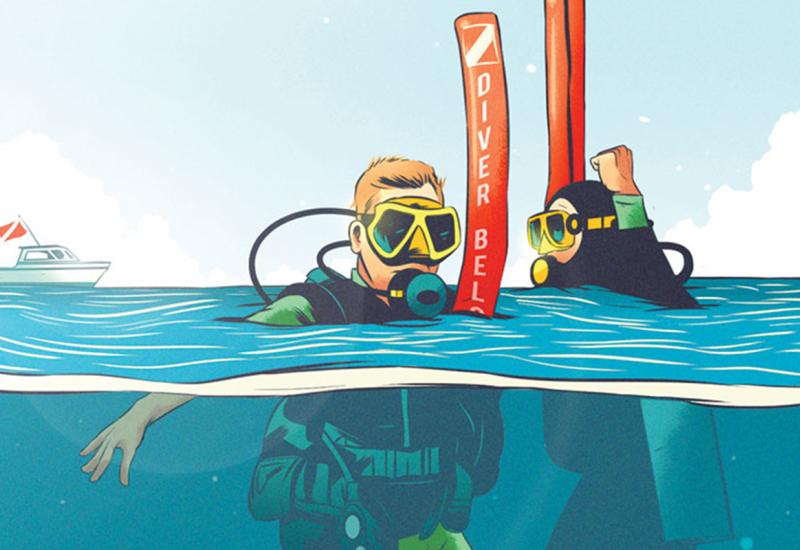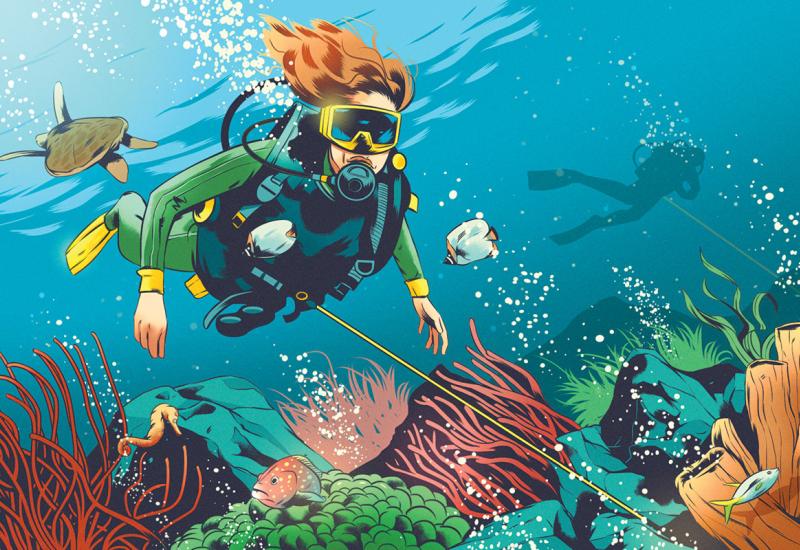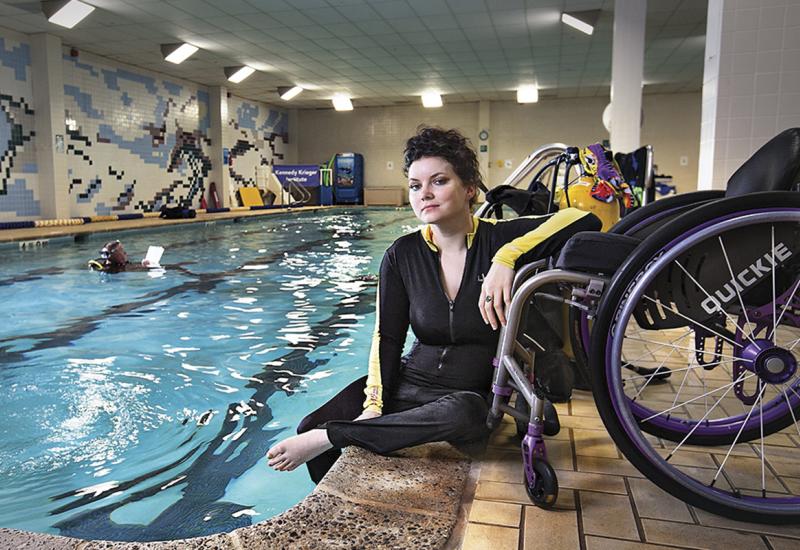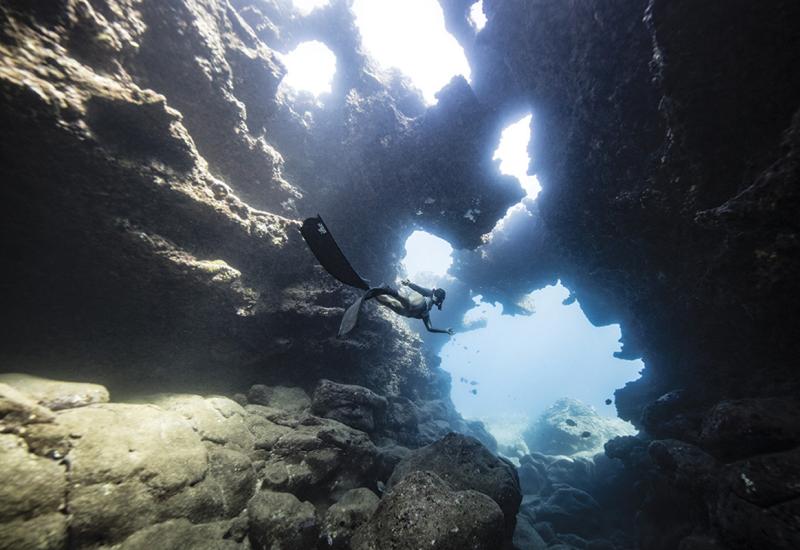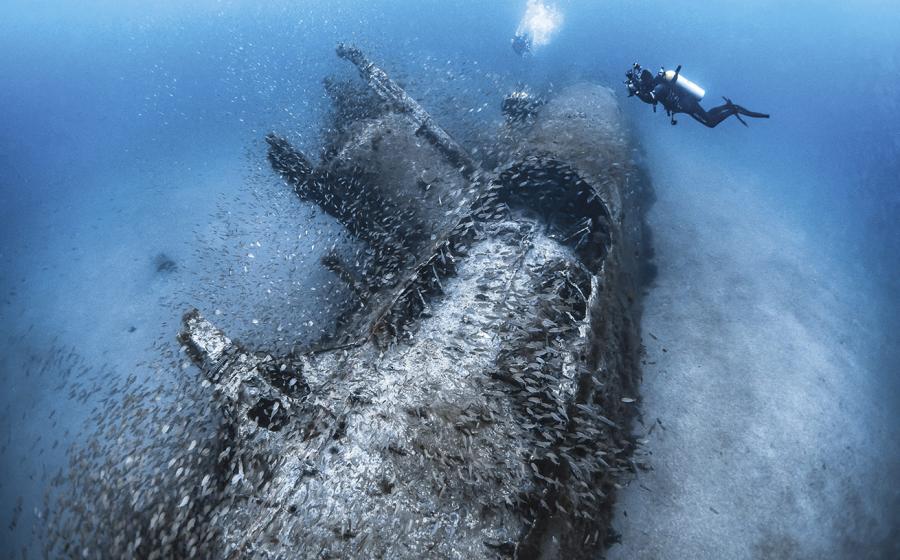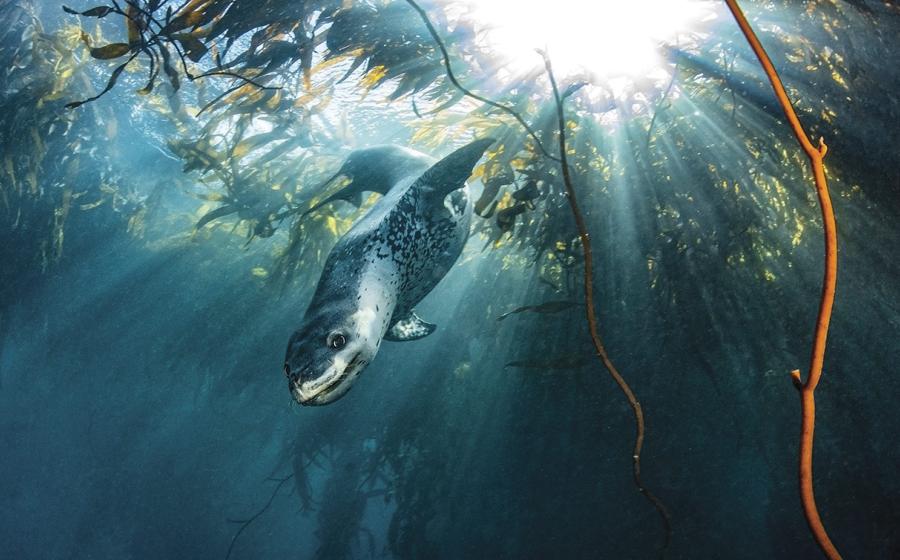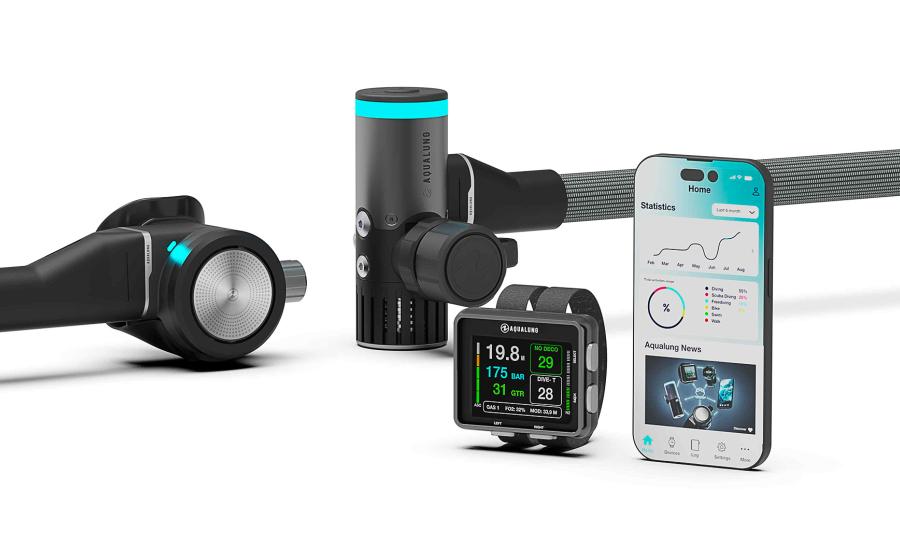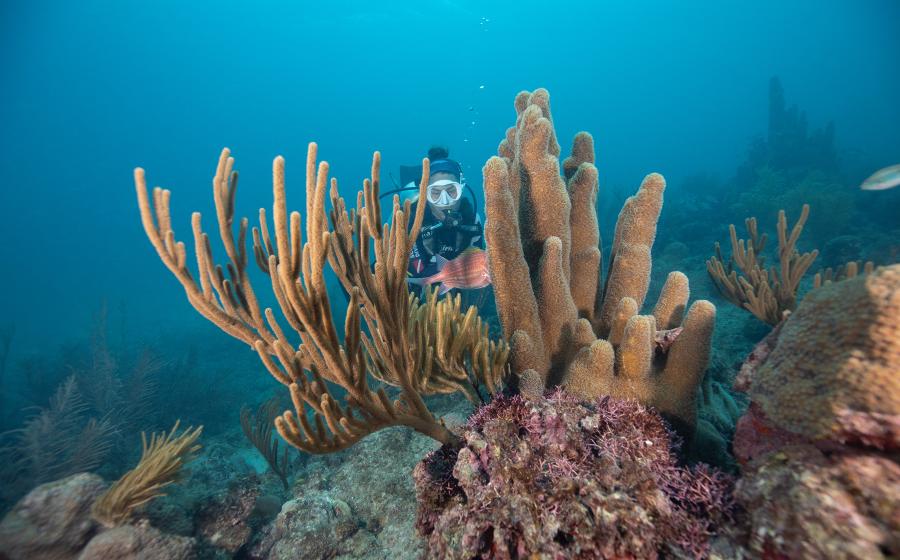Why Paralympian Ryan Chalmers is Driven to Share Scuba Diving with Young People
It wasn’t until Paralympian Ryan Chalmers, born with spina bifida, started his Rescue Diver training that he found the sport of scuba challenging.
Specifically, it was the drill of bringing an unresponsive diver from 30 feet to the surface and onto a boat.
“My feet were floating, and it was taking forever to bring the person up,” says Chalmers. “But I couldn’t just say, ‘I’m giving up on this.’”
To adapt, he started first with 1-pound ankle weights to keep his legs beneath him. “But I knew I didn’t want to use those on a regular basis. I don’t like to use any equipment that would be different in any way [from other divers].”
That scuba is a great equalizer — regardless of physical ability — is, in large part, what connected Chalmers with the sport when he was 15.
Chalmers was born with spina bifida, which often results in an inability to walk. Chalmers was also born with an inner drive to win, leading him to complete a 3,500-mile wheelchair push across the United States.
MORE INSPIRING DIVERS: Shane Yost | Paul Zanelli | Cody Unser
As a child, he’d been relegated to using crutches when playing baseball and a host of other sports, so when he began diving, what he noticed first is that “it was a sport I could do that required no adaptive equipment. Yes, I dive with my arms and others dive with their legs. But other than that, I am doing the exact same thing that they are. The moment I realized that changed my life.”
Chalmers was recruited to the scuba world by Roger Muller, founder of Stay-Focused, an organization introducing teenagers with physical disabilities to scuba. Muller had attended one of Chalmers’ sporting events and recognized immediately that the teen would be a good match for the program.

Zach StovallRyan Chalmers, in the Cayman Islands
“I knew when I first met Ryan that he was potentially going to be the person who was very much involved in the organization,” says Muller. “Lo and behold, 12 years later, here we are.”
Currently, Chalmers works as Muller’s right-hand man, prepping to take over Muller’s position when he retires in the distant future.
Until then, Chalmers stays heavily involved in the program, buddying with participants and helping them feel quickly at ease thanks to his knack for inspiring others to keep going — namely because he has never been a quitter.
Someone else might have been content using ankle weights to get a passing mark on that rescue drill, but not Chalmers, who represented the United States at the 2012 Paralympic Games in London.
“I needed to have the dive instructors involved in Stay-Focused be confident in me without them needing to look over my shoulder, so I knew I had to figure out a way to adapt.”
And so he kept at it.
“I worked on my breathing, and I found that if I exhale more than I normally do, my legs sink underneath me,” says Chalmers. “If I do a shallower breath, my legs shift downward, and I’m able to help in that scenario. It’s all about keeping my balance.”
But beyond learning a lesson in balancing, Chalmers sets a powerful example. He adds, “Scuba isn’t for everyone, but because it’s such a great way to challenge yourself, nothing else compares when it comes to building confidence.”
Stay- Focused
When Roger Muller’s brother Bobby came home from the Vietnam War a paraplegic at age 22, the result of a gunshot wound, it wasn’t until the two went diving that Muller saw relief and freedom on his sibling’s face. After that dive, Muller founded a public charity specializing in taking people with paralysis diving in Grand Cayman. The organization, based in New York, focuses on teens between the ages of 13 and 19 because, says Chalmers, “at those ages, participants can build a lot of confidence with diving.” stay-focused.org
— Photos and Video by Zach Stovall

